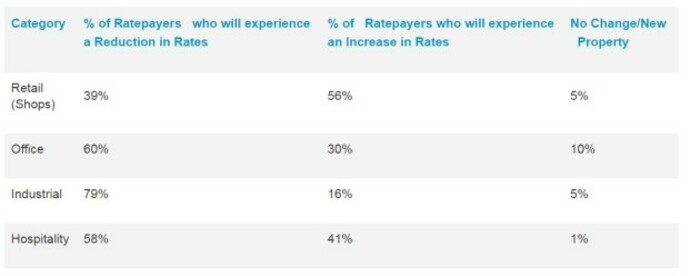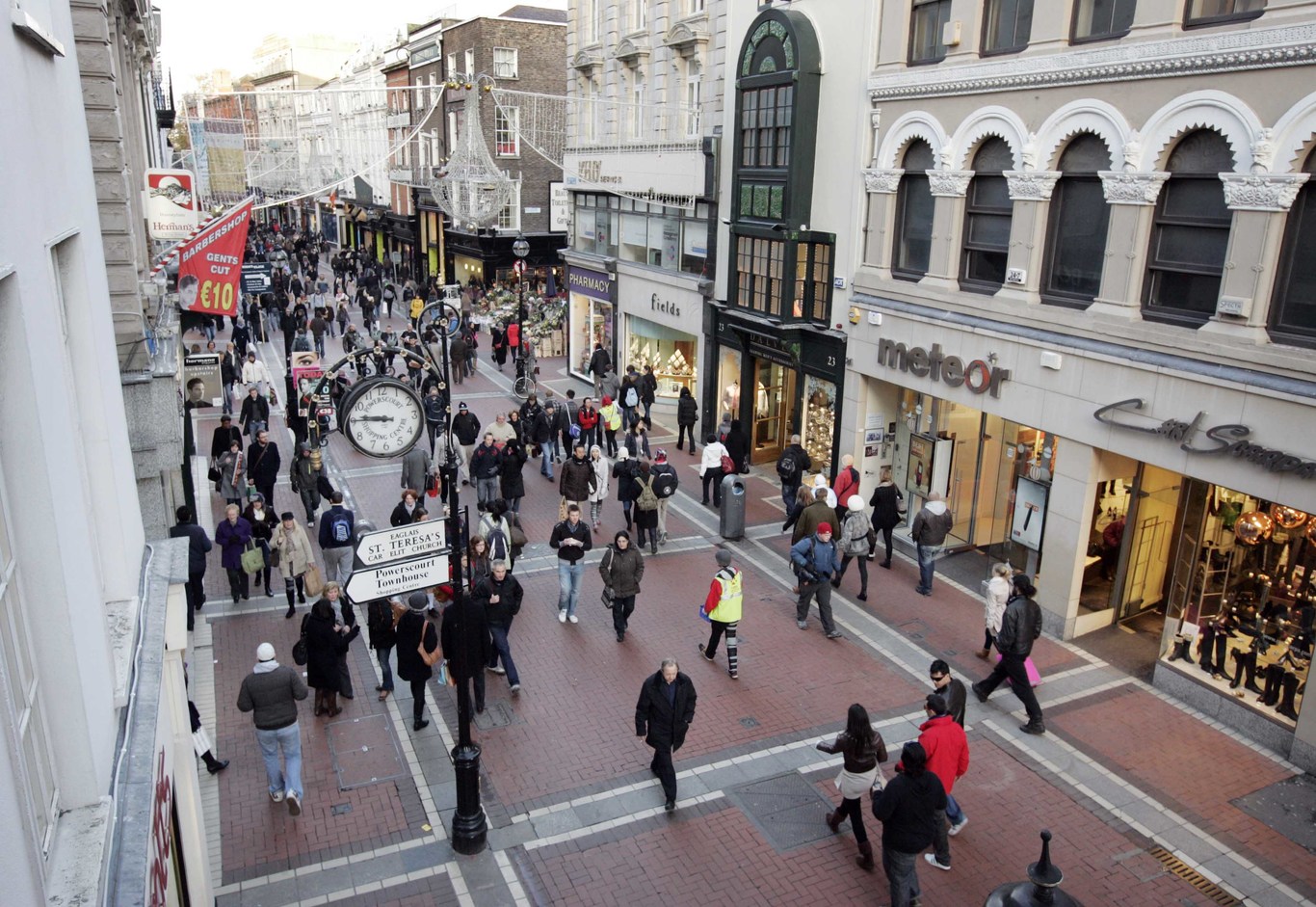Retailers say they're being targeted with rates hikes to pay for discounts elsewhere
More than half of all stores in some regions will have to pay more next year.
A MAJOR RETAIL lobby group says that shop owners are being unfairly targeted with hikes to their commercial rates bills next year – a claim that state officials strongly reject.
Ibec group Retail Ireland has claimed that the majority of retailers will experience an increase to their rates bills in 2018 based on data published by a government agency and feedback from its members.
Commercial rates are a property tax on business premises collected by local authorities. Rates are paid by businesses that either own or lease a commercial building.
The bill is calculated using a multiplier – set by the local council – to a value for the property determined by the Commissioner of Valuation.
The commissioner is currently overseeing a national programme to revalue commercial and industrial properties across all 31 local authorities.
In September, it completed the revaluation of properties in Carlow, Kildare, Kilkenny, Leitrim, Longford, Offaly, Roscommon, Sligo, south Dublin and Westmeath.
The figures showed that more than half of shop owners based in Kilkenny, south Dublin and Westmeath will be handed a higher rates bill next year. That compared to much lower rates of increase for those in office-based, industrial and hospitality businesses.
For example, 39% of south Dublin retailers will experience a reduction in rates next year while 56% will experience an increase. Meanwhile some 79% of ratepayers in the ‘industrial’ category will experience a reduction and 16% will experience an increase.
 South Dublin data
South Dublin data
Click here to view a larger version.
Fora contacted all three local authorities for comment but had not received a response from any of them at the time of publishing.
‘Burden’
Retail Ireland director Thomas Burke said the Ibec group believes that rate increases will hit retailers nationwide, not just in the regions already highlighed.
He claimed that nearly three-in-five retailers across the country could experience a rates increase in 2018. He said the estimated figure is based on data published by the Valuations Office and anecdotal evidence collected from Retail Ireland members.
“We were promised (by the government) at the start of the revaluation process that 60% of businesses would see their rates bill fall,” Burke told Fora. “What we’re seeing in the retail sector is that almost 60% will see their rates bill increase in 2018.”
Retail Ireland has suggested that the sector is being ‘targeted’ to allow discounts to be applied to other industries.
“The burden seems to be falling more significantly upon retail at the moment,” Burke said. “That’s obviously going to be a problem for our members in terms of their competitive position in 2018 and beyond.”

However the Valuations Office has strongly denied that discounts have been applied to businesses in other sectors at the expense of retailers.
A spokeswoman for the agency told Fora that the office “categorically rejects the assertion that retailers have been targeted in the ongoing revaluation programme”.
She added that under the current legislation revaluations of properties in all sectors “are assessed on the same legal basis and are based on an analysis of local market information”.
Business owners can appeal the valuation of their property to an independent tribunal, but so far September’s revaluations had resulted in an average appeal rate of just over 4%.
In the case of retail properties – which includes banks, restaurants and salons – the appeal rate was 3.6%.
“This low appeal rate gives an indication of the acceptance of the new valuations by ratepayers,” the spokeswoman said.
‘Opaque’
Burke said he accepted there could be legitimate reasons for why a retailer would experience a rate increase. He also acknowledged that the retail sector may account for a higher proportion of commercial activities in some areas.
“It’s not a case that we as an industry are saying we don’t want to pay our way,” he said. “We absolutely recognise the benefit of the work that local authorities do … Obviously retail, more than most sectors, benefits from a positive high-street experience.”
However, he said that Retail Ireland is concerned that the current commercial rates system is overly complicated and “lacks transparency”.
He said members have complained that they are unsure of how exactly their rate is levied each year and “don’t get a real clear line of sight as to how the final number is arrived upon”.
“It’s this general sense that the system is opaque. Retailers do like a certain degree of certainty so they can plan and make those business decisions. At the moment, that’s just not possible.”
Policy
Earlier this year, Retail Ireland proposed a number of suggestions for improving the current rates system. They included shifting the responsibility for collecting commercial rates from local authorities to the Revenue Commissioners.
Burke said this would improve the rate of compliance and potentially reduce bills across every sector.
“Revenue has a proven track record in terms of collecting tax. They do it on a daily basis. They’re very efficient at it,” he said.
A spokesman for the Department of Local Government told Fora that in April this year the government approved the preparation of laws to “modernise the legislation governing commercial rates”. However, it’s not clear when the proposed legislation will be introduced.
“We need to get this right and we need to do this in reasonably short order,” Burke said. “These increased commercial rates are going to start hitting businesses from January onward.”






